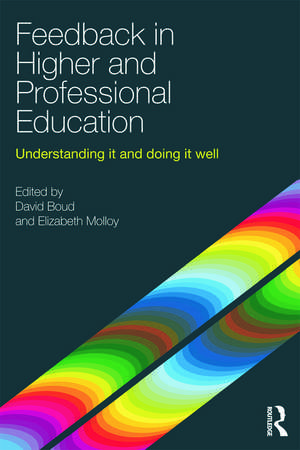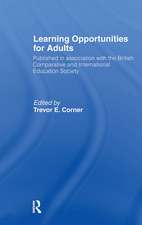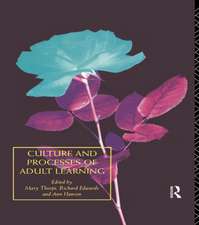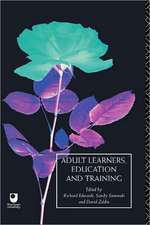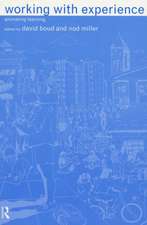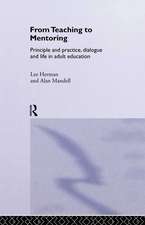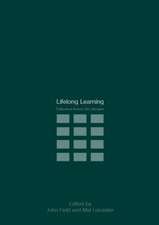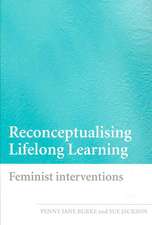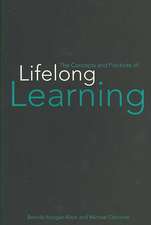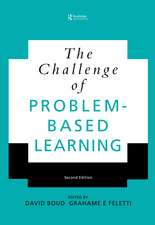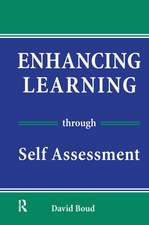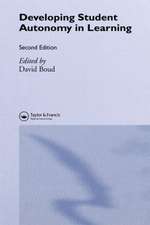Feedback in Higher and Professional Education: Understanding it and doing it well
Editat de David Boud, Elizabeth Molloyen Limba Engleză Paperback – 29 noi 2012
Feedback in Higher and Professional Education explores what needs to be done to make feedback more effective. It examines the problem of feedback and suggests that there is a lack of clarity and shared meaning about what it is and what constitutes doing it well. It argues that new ways of thinking about feedback are needed.
There has been considerable development in research on feedback in recent years, but surprisingly little awareness of what needs to be done to improve it and good ideas are not translated into action. The book provides a multi-disciplinary and international account of the role of feedback in higher and professional education. It challenges three conventional assumptions about feedback in learning:
- That feedback constitutes one-way flow of information from a knowledgeable person to a less knowledgeable person.
- That the job of feedback is complete with the imparting of performance-related information.
- That a generic model of best-practice feedback can be applied to all learners and all learning situations
| Toate formatele și edițiile | Preț | Express |
|---|---|---|
| Paperback (1) | 281.14 lei 6-8 săpt. | |
| Taylor & Francis – 29 noi 2012 | 281.14 lei 6-8 săpt. | |
| Hardback (1) | 1002.36 lei 6-8 săpt. | |
| Taylor & Francis – 29 noi 2012 | 1002.36 lei 6-8 săpt. |
Preț: 281.14 lei
Nou
Puncte Express: 422
Preț estimativ în valută:
53.79€ • 56.17$ • 44.52£
53.79€ • 56.17$ • 44.52£
Carte tipărită la comandă
Livrare economică 04-18 aprilie
Preluare comenzi: 021 569.72.76
Specificații
ISBN-13: 9780415692298
ISBN-10: 0415692296
Pagini: 240
Ilustrații: 15 black & white illustrations, 10 black & white tables
Dimensiuni: 156 x 234 x 15 mm
Greutate: 0.44 kg
Ediția:New.
Editura: Taylor & Francis
Colecția Routledge
Locul publicării:Oxford, United Kingdom
ISBN-10: 0415692296
Pagini: 240
Ilustrații: 15 black & white illustrations, 10 black & white tables
Dimensiuni: 156 x 234 x 15 mm
Greutate: 0.44 kg
Ediția:New.
Editura: Taylor & Francis
Colecția Routledge
Locul publicării:Oxford, United Kingdom
Public țintă
Academic and Professional Practice & DevelopmentCuprins
1. The Problem with Feedback 2. Changing Conceptions of Feedback 3. Resituating Feedback from the Reactive to the Proactive 4. The Impact of Emotions in Feedback 5. Socio-cultural Considerations in Feedback 6. Trust and Sustainable Feedback for the Development of Student Learning Dispositions 7. Written Feedback: What is it good for and how can we do it well? 8. Feedback in the Digital Environment 9. Feedback on Skills in Simulation 10. Implementing Multisource Feedback 11. The Role of Peers in Feedback Processes 12. Utilising the Voice of Others: The example of consumer-delivered feedback 13. Decision-making for Feedback
Notă biografică
David Boud is Professor of Adult Education in the Faculty of Arts and Social Sciences at the University of Technology, Sydney, Australia.
Elizabeth Molloy is an Associate Professor in the Health Professions Education and Educational Research Unit in the Faculty of Medicine, Nursing and Health Sciences at Monash University, Melbourne, Australia.
Elizabeth Molloy is an Associate Professor in the Health Professions Education and Educational Research Unit in the Faculty of Medicine, Nursing and Health Sciences at Monash University, Melbourne, Australia.
Recenzii
"This book is timely and interesting and is to be recommended as a core read for all practitioners in understanding both their learners and the feedback process better." - David Ross, Director of the Centre for Academic Practice and Learning Development at the University of the West of Scotland
Descriere
Feedback in Higher and Professional Education explores what needs to be done to make feedback more effective. It examines the problem of feedback and suggests that there is a lack of clarity and shared meaning about what it is and what constitutes doing it well. It argues that new ways of thinking about feedback are needed.
There has been considerable development in research on feedback in recent years, but surprisingly little awareness of what needs to be done to improve it and good ideas are not translated into action. The book provides a multi-disciplinary and international account of the role of feedback in higher and professional education. It challenges three conventional assumptions about feedback in learning:
There has been considerable development in research on feedback in recent years, but surprisingly little awareness of what needs to be done to improve it and good ideas are not translated into action. The book provides a multi-disciplinary and international account of the role of feedback in higher and professional education. It challenges three conventional assumptions about feedback in learning:
- That feedback constitutes one-way flow of information from a knowledgeable person to a less knowledgeable person.
- That the job of feedback is complete with the imparting of performance-related information.
- That a generic model of best-practice feedback can be applied to all learners and all learning situations
